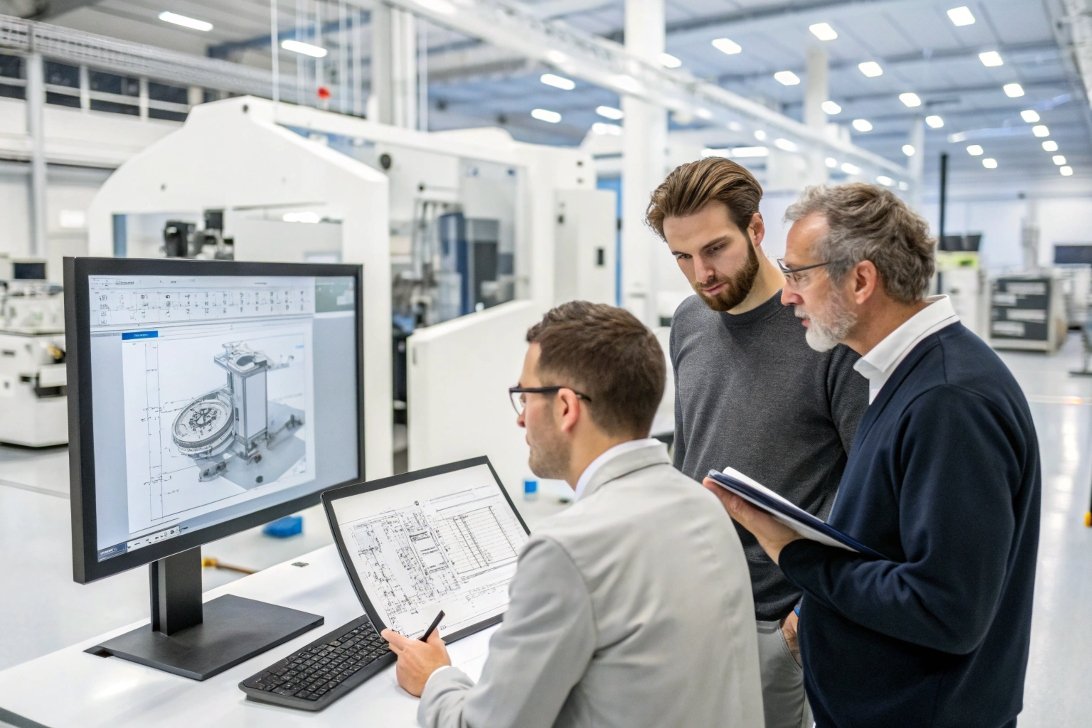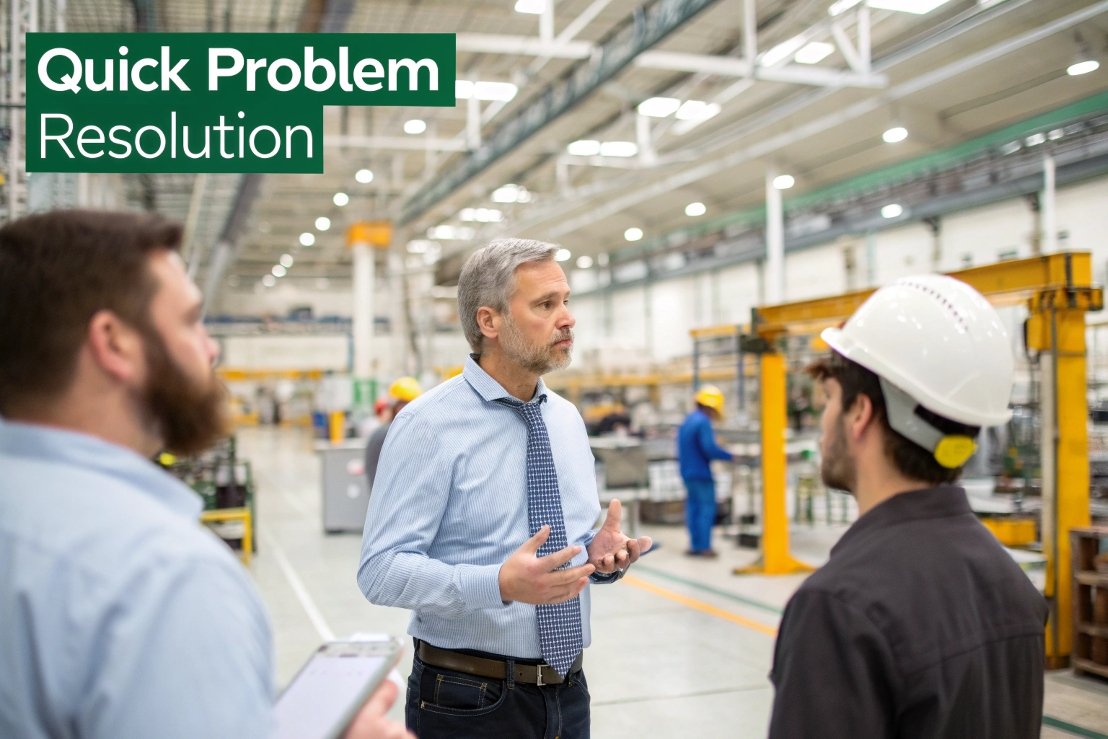
When sourcing custom parts, evaluating the experience of a supplier is one of the most critical steps you can take to ensure project success. I’ve seen firsthand how choosing the right supplier with the necessary expertise can make or break a project. With so many suppliers out there, how do you make sure you choose the one that meets your needs?
Evaluating the experience of your supplier is essential because it directly impacts the quality, delivery time, and cost-effectiveness of your custom parts. By assessing key factors such as industry experience, technical capabilities, and past project success, you can ensure that your supplier is well-equipped to handle your specific requirements.
Let’s dive into how you can evaluate your custom parts supplier1r’s experience](https://www.mechanicalpower.net/blog/industrial-machinery/supplier-evaluation-and-selection-for-industrial-machinery-parts/?srsltid=AfmBOoo6qHEuMti0bOLkA_0eUrKTInRi6hZ4dwl__ThmnDGV-x4vI7CG)[^2] and why it matters for the success of your project.
What Criteria Should You Use to Assess a Supplier’s Experience in Custom Parts Manufacturing?

When assessing a supplier’s experience in custom parts manufacturing, it’s essential to evaluate several key criteria that directly influence the outcome of your project. A supplier’s experience goes beyond just the number of years in business; it encompasses their capabilities, past projects, and how well they can meet your unique requirements.
Key Criteria for Evaluating Supplier Experience
| Criteria | What to Look For |
|---|---|
| Industry Experience | Check if the supplier has worked in your specific industry (e.g., automotive, electronics). Relevant experience ensures they understand your industry’s specific needs. |
| Technical Expertise | Evaluate the supplier’s engineering and design capabilities. Do they have the necessary skills to handle the complexity of your custom parts? |
| Production Capacity | Assess whether the supplier has the production capacity to meet your order volume within your required timeline. |
| Quality Control Systems | Ensure the supplier has robust quality control systems2 in place to ensure the parts meet your specifications consistently. |
| Past Clientele and Case Studies | Look for evidence of successful partnerships with past clients. A solid portfolio of similar projects can be a good indicator of experience. |
| Certifications and Standards | Ensure the supplier holds relevant industry certifications (e.g., ISO, UL). These certifications reflect their commitment to quality and compliance. |
| Reputation and References | Ask for references or case studies from previous clients. A reputable supplier should have a track record of successful projects and positive feedback. |
My Experience with Evaluating Suppliers
When I first started sourcing custom parts, I found it easy to overlook the importance of supplier experience. I once chose a supplier based mainly on price, only to run into issues with delivery delays and quality problems. Since then, I’ve learned that a supplier’s experience with your specific type of project can often outweigh other factors like cost. Now, I always make sure to ask the right questions and gather as much information as possible before making a decision.
How Can You Ensure Your Supplier Has the Necessary Expertise for Your Needs?

It’s one thing to assess a supplier’s experience on paper, but how do you ensure they have the necessary expertise for your particular custom parts needs? The answer lies in clear communication, detailed assessments, and sometimes, asking for a trial run or sample.
Steps to Ensure Supplier Expertise
| Step | How It Helps |
|---|---|
| Define Your Requirements Clearly | Provide the supplier with detailed drawings, specifications, and expectations. The clearer you are, the more likely they will understand if they can meet your needs. |
| Request a Technical Assessment | Ask the supplier to conduct a technical evaluation to assess whether they have the necessary resources and expertise to handle your specific requirements. |
| Ask for Samples or Prototypes | A supplier should be able to produce a prototype or sample to demonstrate their capabilities before proceeding with the full order. |
| Evaluate Engineering Capabilities | Review the supplier’s engineering team and their ability to handle complex customizations. Does the supplier have a dedicated team for product design and development? |
| Look for Continuous Improvement | Suppliers that invest in research, development, and new technology show a commitment to innovation and can better handle evolving custom part needs. |
A Real-World Example
I’ve found that one of the best ways to assess a supplier’s expertise is through collaboration. When I worked with a new supplier on a complex part, we set up a detailed meeting to review the engineering process, materials, and production timelines. This not only confirmed their expertise but also allowed us to address any potential issues early on. The result was a highly successful project, delivered on time and within budget.
Why Is Supplier Experience Crucial for the Success of Custom Parts Projects?

The experience of your supplier can significantly impact the outcome of your custom parts project. An experienced supplier can foresee potential issues, offer valuable insights during the design phase, and ensure smoother production processes. Their expertise helps mitigate risks and guarantees that you’ll receive parts that meet your exact specifications.
Why Supplier Experience Matters
| Reason | How It Benefits Your Custom Parts Project |
|---|---|
| Risk Mitigation | An experienced supplier knows how to avoid common pitfalls, such as production delays or quality issues, which can save you time and money. |
| Faster Problem Resolution | If issues arise, experienced suppliers can respond more quickly and effectively, minimizing disruptions in your project timeline. |
| Higher-Quality Results | Experienced suppliers often have better quality control systems in place, ensuring that custom parts meet your specifications and standards. |
| Innovation and Solutions | An experienced supplier can offer suggestions or improvements to your design, helping you create a more cost-effective or higher-performing part. |
| Better Project Management | Suppliers with experience managing similar projects can better handle timelines, budgets, and communication, ensuring smoother operations from start to finish. |
My Takeaway from Supplier Experience
Having worked with several suppliers over the years, I’ve come to appreciate how crucial supplier experience is for success. Suppliers with proven track records can provide not only the technical know-how but also the practical solutions that keep projects on track. Their experience in overcoming challenges, adhering to timelines, and maintaining quality standards has been key to the success of my custom parts projects.
Conclusion
Evaluating the experience of your supplier is a critical step when sourcing custom parts. By assessing factors such as industry expertise, technical capabilities, past project success, and the supplier’s ability to meet your specific needs, you can significantly improve the chances of project success. In my experience, working with experienced suppliers has led to smoother production, higher-quality parts, and ultimately, better business outcomes.

